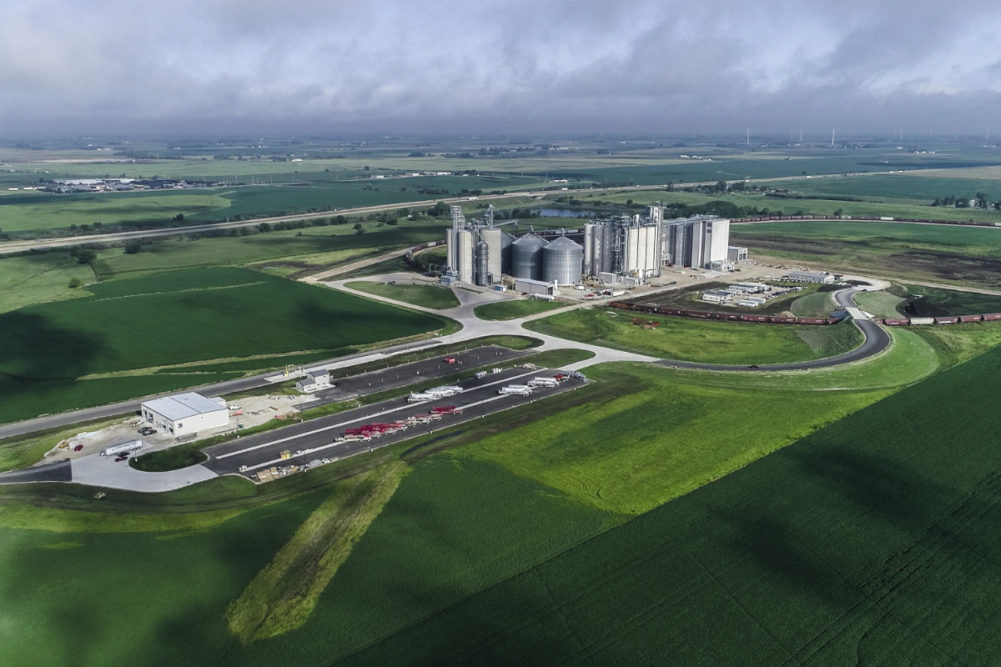CHICAGO, ILLINOIS, US — In what a company executive described as an “industry first of its kind and scale,” ADM on Aug. 31 announced its US flour milling operations have achieved net carbon neutral status. The designation applies to the company’s wheat flour mills, dry corn milling facilities and its sorghum mill in the United States.
The achievement represents a “green stamp of approval on our US flour mills,” said Christopher M. Cuddy, president of ADM’s Carbohydrate Solutions division, which includes its Milling and Baking Solutions group.
“We’re pretty pumped about what that says about an industry that is thousands of years old, yet continues to reinvent itself,” he said. “For ADM, this step in our journey shows our deep commitment to sustainability, while maintaining our leadership position as a world class supplier.”
ADM reached net carbon neutral status at its US mills through a combination of increasing the energy efficiency of its milling facilities, by purchasing renewable energy certificates (representing electricity generated from sources such as solar, wind or hydro) and by sequestering carbon dioxide at the parent company’s fermentation operations in Decatur, Illinois, US.
“Consumers increasingly expect their food to come from companies that share their values,” said Tedd Kruse, president, Milling and Baking Solutions. “ADM is proud of our position as a trusted and capable partner in delivering responsibly and sustainably sourced ingredients that meet heightened consumer expectations.”
In an interview with Milling & Baking News, a sister publication of World Grain, Cuddy said the seeds for the accomplishment were planted 10 years ago when ADM on a company-wide basis launched its 15x20 campaign to cut water use, energy use and greenhouse gas emissions by 15% no later than 2020. The company reached its objectives, early, but ADM’s milling group stood out in the effort.
“Milling surpassed the benchmark,” he said. “We reduced by 25% greenhouse gas emissions.”
The specific idea to pursue carbon neutrality was generated more recently, Mr. Cuddy said.
"The lightbulb went off for us that this is an opportunity we can not only participate in but be a leader in," said Christopher M. Cuddy, ADM.
“It’s been in the last two years we saw a change in consumer sentiment around what sustainability means for the food they eat,” he said. “The lightbulb went off for us that this is an opportunity we can not only participate in but be a leader in.”
Cuddy noted that Milling and Baking Solutions is not only the first US flour milling company to achieve carbon neutral status, it also is the first division within ADM to reach that achievement.
In its announcement of the carbon neutral milestone, ADM cited a 2020 Euromonitor International Lifestyle Survey, which said 68% of consumers are worried about climate change, 37% are cutting their personal carbon emissions, 22% are offsetting their carbon footprint, and 67% support carbon labeling.
“We’re listening to the consumer because they are the one who is pulling this idea through the value chain,” Cuddy said. “We’re also listening to our customers, who have told us the same thing, as they echo what the consumer tells them.”
He said ADM’s decision to go carbon neutral was fueled by statements made by many of its customers committing to become more sustainable.
“We’re paying attention to all those things,” he said. “That’s what led us to the conclusion there is a void here and we can fill it."
While it was the first division of the company to achieve carbon net neutrality, Cuddy said Milling and Baking relied on ADM in numerous ways to help it achieve its objective, including receiving credit for a portion of the carbon sequestration at the ADM fermentation operations in Decatur.
“We do energy ‘treasure hunts,’ not just Milling and Baking Solutions but all across ADM,” Cuddy said. “We have teams who go and look for ways to save energy. Ways to save water. Ways to do heat and thermal load recycling. These are in-house experts, and they travel from place to place. They look for steam traps or leakages. Some of this is elementary. Some is more complicated.”
Within the milling business itself, numerous changes made in recent years contributed to the enhanced energy efficiency of the entire business, Cuddy said. He cited the closings of flour mills in California, Illinois, Kansas and Minnesota, together with the construction of a state-of-the-art mill in Mendota, Illinois, US, and the expansion and modernization of the company’s flour mill in Enid, Oklahoma, US.
Such steps heighten the company’s pride in achieving carbon neutrality, Cuddy said.
“As much as renewable energy credits are great, in the end we want to make ourselves more efficient and sustainable too, and we are using all the tools I discussed to do exactly that,” he said.






